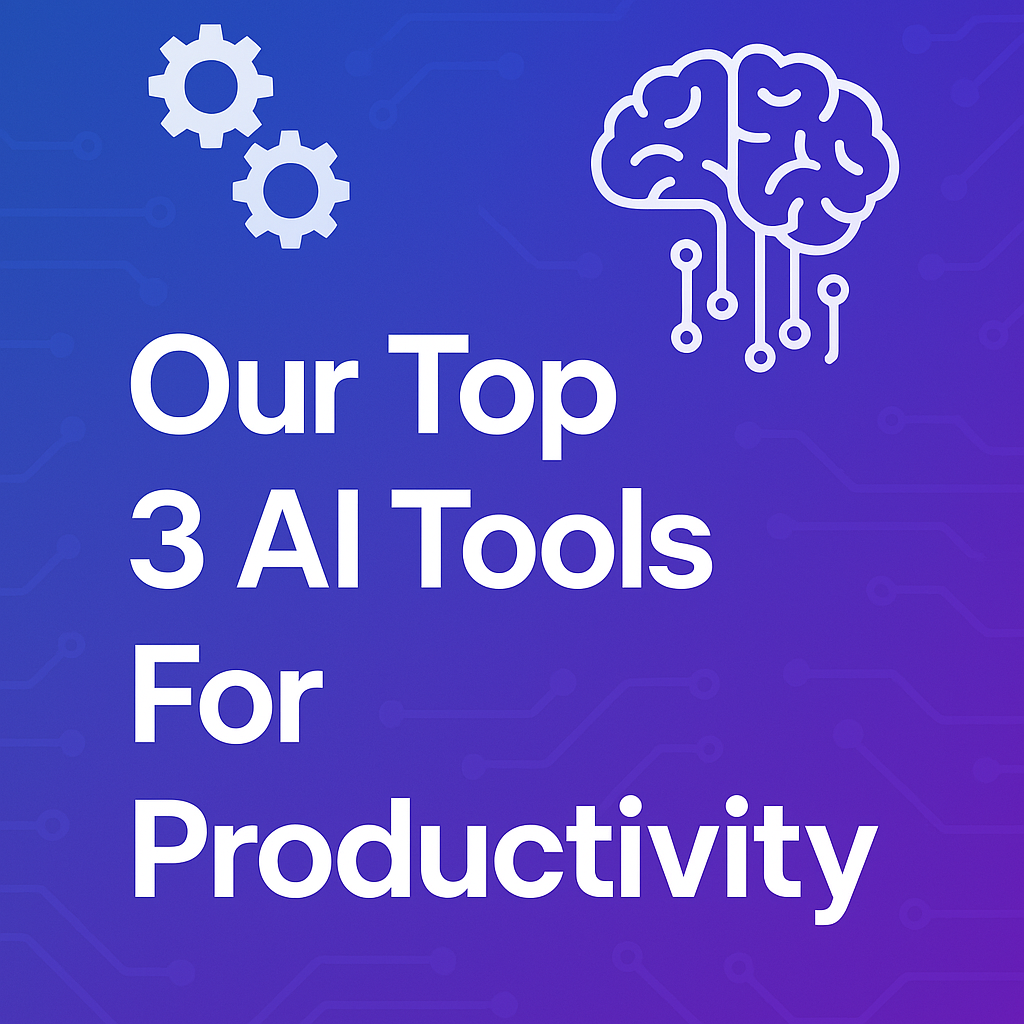In a recent episode of my podcast, Business Over Brew, Paul and I shared some of my favorite AI tools that genuinely make my day-to-day work easier. With a lengthy career spanning sales, marketing, and leadership roles, I’ve had the opportunity to test numerous tools and technologies. The AI tools I’ll discuss here stand out as exceptionally practical, significantly simplifying various aspects of my workflow. I’ll also provide my take on a couple of popular tools that I find less impressive and discuss an AI advancement that genuinely worries me.
Lovable
Why We Like Lovable:
- Quickly builds front-end code from straightforward text prompts
- Has impressive debugging capabilities
- Excellent for creating rapid UX/UI prototypes
Lovable is one of those tools that genuinely simplifies my work. Previously, developing interfaces required significant back-and-forth collaboration with designers and developers, which often slowed down the creative process. Lovable changes this by allowing me to input straightforward text instructions, which it then swiftly translates into fully functional front-end code.
To put Lovable to the test, I recently challenged it to create a fully functioning Pac-Man game. Surprisingly, it handled the task effortlessly. I mention this specifically because a recent Guardian article criticized the current limitations of AI tools in similar tasks. However, Lovable comfortably exceeded expectations, demonstrating its robust debugging and execution capabilities. This practical experience highlighted for me how much Lovable simplifies what would typically be a complex, iterative process.
ChatGPT
Why We Like ChatGPT:
- Versatile tool ideal for translations, summaries, and competitive analyses
- Transforms informal voice notes into clear, actionable summaries
- Cost-effective with extensive features
ChatGPT consistently proves itself as an indispensable part of my toolkit. Its versatility across numerous tasks is remarkable—from quick translations and meeting summaries to detailed competitive research. Recently, I utilized ChatGPT to convert a spontaneous voice recording outlining a complicated sales scenario into concise, actionable bullet points. The outcome was clear, structured, and perfectly prepared my team for our upcoming meeting.
While various other language models and AI assistants exist, ChatGPT remains my favorite due to its expansive capabilities and affordability. It streamlines not only professional tasks but also personal ones, offering solutions that significantly enhance my productivity.
NotebookLM
Why We Like NotebookLM:
- Makes digesting complex and lengthy regulatory documents straightforward
- Generates conversational podcasts from dense documents
- Helps me efficiently absorb and retain detailed information
NotebookLM by Google is a fantastic tool for quickly making sense of complex documents. In my line of work, I regularly encounter lengthy and dense regulatory texts. Using NotebookLM, I simply upload these documents, and it generates easy-to-follow conversational podcasts highlighting key points and concepts. This novel approach dramatically improves my ability to understand and retain complicated information, drastically reducing the time I would typically spend poring over these texts.
The conversational style of these podcasts is incredibly helpful, especially when learning intricate subjects or keeping up with regulatory updates. It has significantly impacted how efficiently I can digest and leverage critical information.
Granola AI
Why We Like Granola AI:
- Effortlessly captures meeting audio without compatibility headaches
- Delivers clear, concise, and highly relevant meeting summaries
- Seamlessly integrates my personal notes into the automated summaries
Granola AI has addressed a major pain point in my daily work routine—efficiently capturing and summarizing meetings. Unlike other note-taking solutions, Granola AI is straightforward; it records audio directly from my computer without requiring complicated integrations with various meeting platforms. This setup makes it universally compatible and hassle-free.
The quality of Granola’s summaries is genuinely impressive. It distills meetings into clear, concise points and incorporates my own notes seamlessly. This capability ensures that meeting outcomes are both actionable and relevant, saving significant time and effort during follow-up activities.
Overrated AI Tools: Zoom AI Summaries & DALL·E
Despite the excitement surrounding certain AI tools, some simply do not live up to expectations. Zoom’s AI summaries often disappoint me due to their cluttered and overly detailed nature. They frequently include trivial details or fail to capture the essential points clearly, making them less useful.
Similarly, DALL·E, OpenAI’s image-generation tool, has not impressed me in practice. Although the concept is fascinating, the images it generates typically appear artificial and fail to match the quality standards required for professional use. I’ve found traditional stock photography more reliable and professional-looking for my needs.
AI Tool That Concerns Us: Video Generation Tools – SORA
Of all the advancements in AI, video generation tools like SORA have me genuinely concerned. These technologies are rapidly improving, making it increasingly difficult to distinguish between real and generated content. Even over just the past year, I’ve noticed dramatic enhancements in realism.
My primary concern revolves around ethical issues and misinformation potential. The rapid improvement in quality raises important questions about accountability and transparency. With the rise of hyper-realistic videos, distinguishing reality from AI-generated content could soon become significantly challenging, creating a troubling landscape for truth and authenticity.
We’re seeing a lot of interesting tools
Overall, the rapid progress of AI technology continues to impact my professional life positively. Tools like Lovable, ChatGPT, NotebookLM, and Granola AI consistently help streamline my tasks, enhance productivity, and make complex processes easier to manage. Conversely, the shortcomings of tools like Zoom AI and DALL·E remind me that not every AI product is equally valuable or effective.
Lastly, the potential misuse of video generation tools underscores the necessity for continuous vigilance and informed usage of AI. Staying aware and critical about AI technologies is more important now than ever. Despite these concerns, I’m optimistic about the future, provided we maintain careful oversight and ethical practices in deploying these powerful tools.
